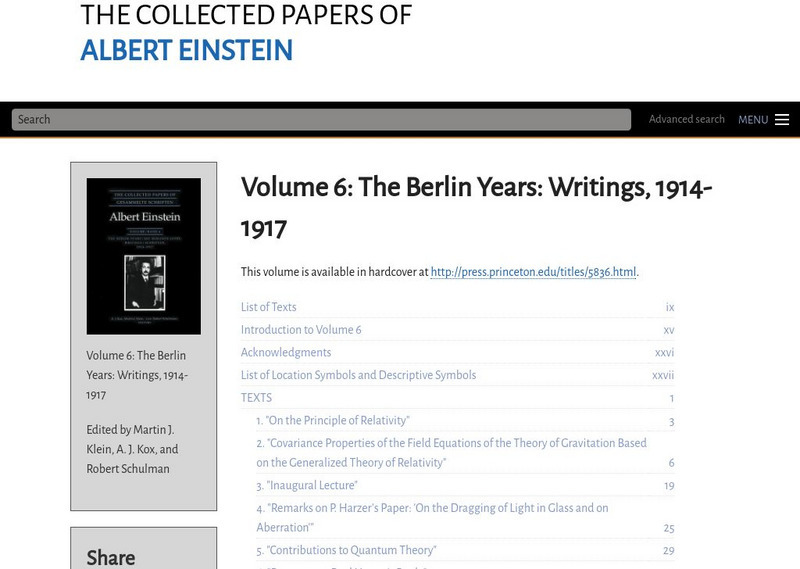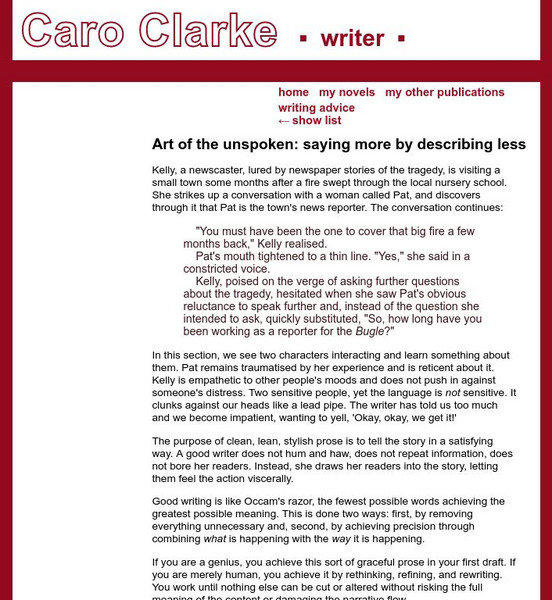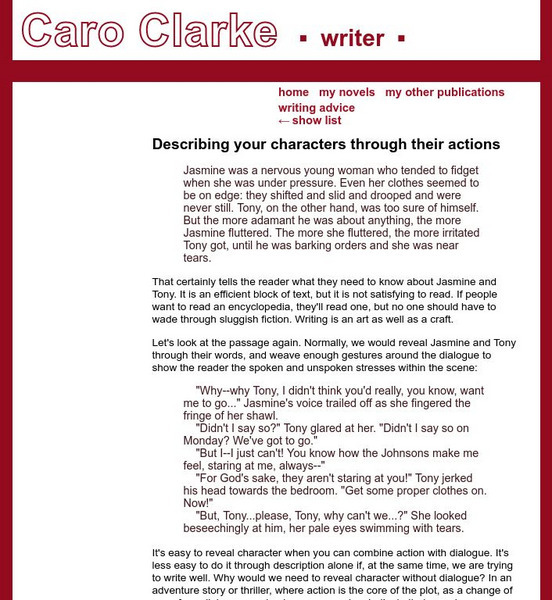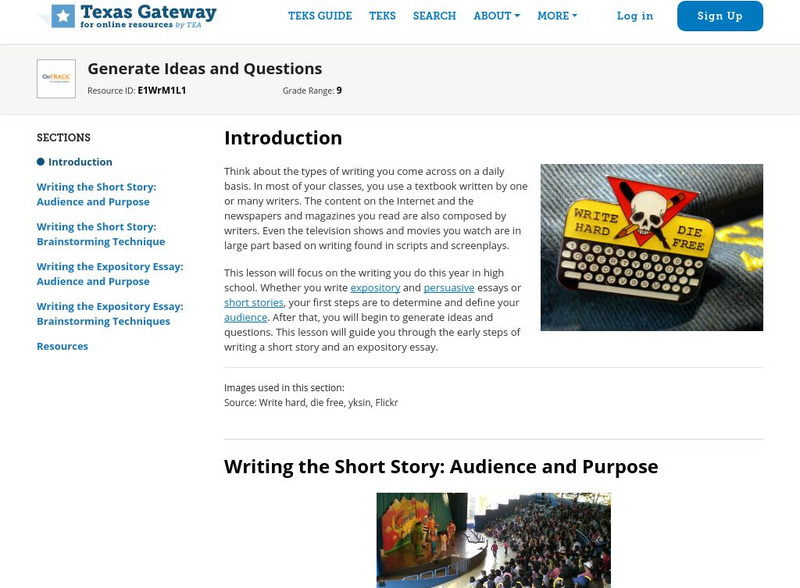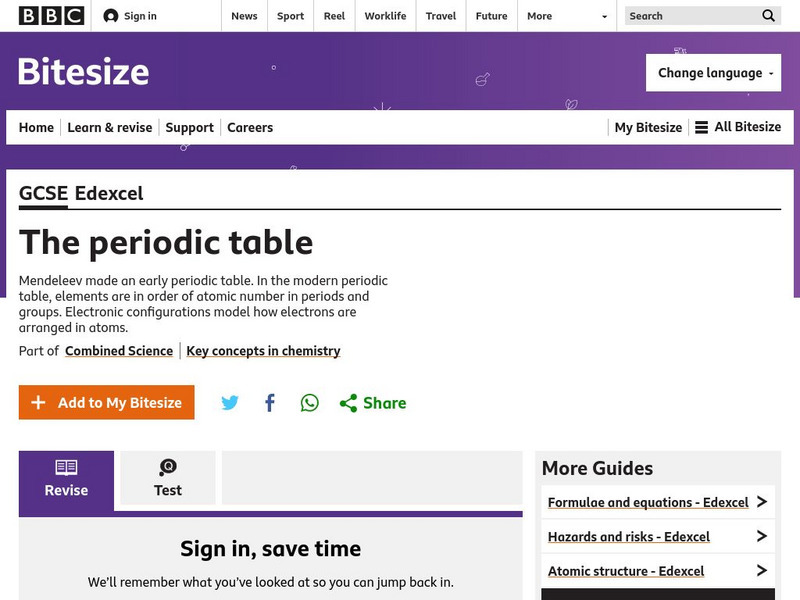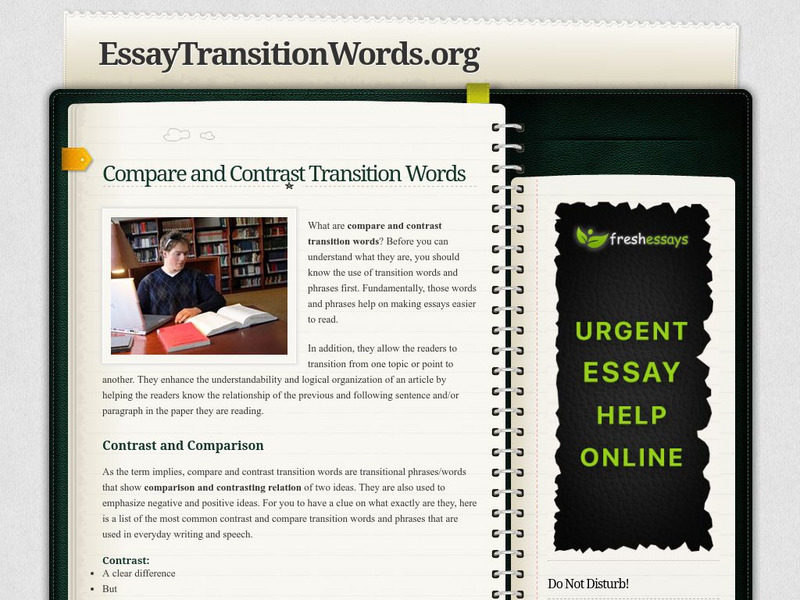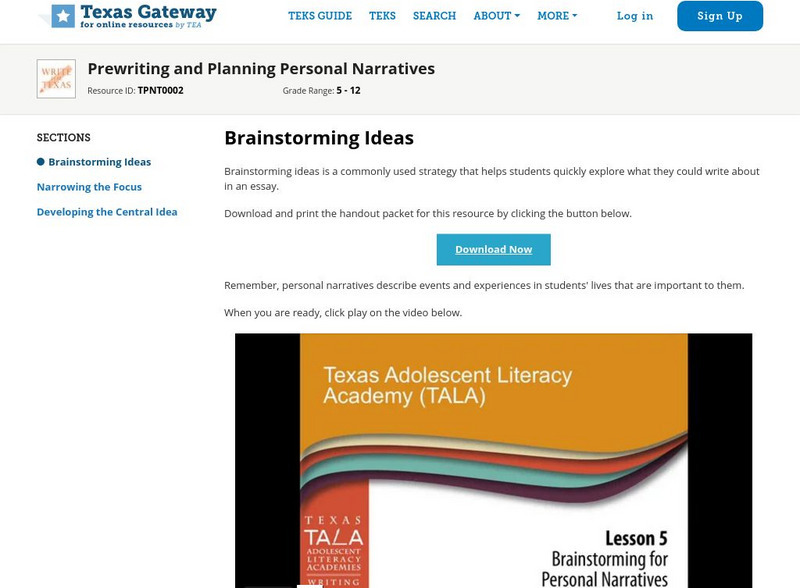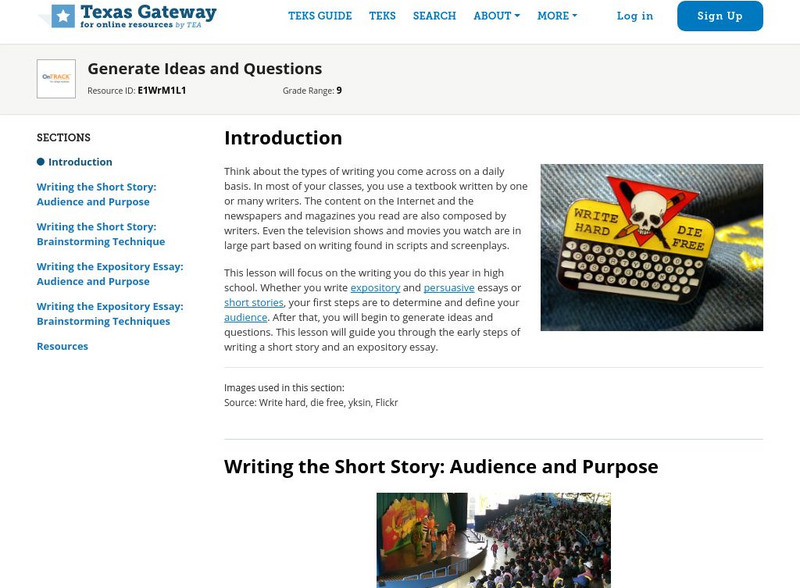Writing Fix
Writing Fix: We Saw Him at the Zoo
In this lesson plan, the mentor text utilized is Deborah Guarino's book, Is Your Mama a Llama?, with the focus of sentence fluency. Each student will think of an animal that that has the same initial sound as his/her name. Using the...
Writing Fix
Writing Fix: Oh, Messy Cheetos!
In this lesson, sentence fluency is the focus. The mentor text entitled Mrs. Wishy Washy is used to help students explore how using repetition techniques can enhance the meaning of a story. After reading the text, students will write...
Writing Fix
Writing Fix: Some Animals Don't Do That!
In this lesson plan, Dogs Don't Wear Sneakers by Laura Numeroff, is used as a mentor text for to highlight the trait of idea development. The content focus of the lesson plan is to highlight what topics cannot do. Students generate a...
Georgia Department of Education
Ga Virtual Learning: Grammar Ii and Technical Writing: Capitalization
This lesson focuses on the rules for capitalization. It offers a list of capitalization rules, and links to several websites about capitalization. Click on the next page (3) for an exercise in capitalization. L.9-10.2 Cap/Punc/Spell
Princeton University
The Collected Papers of Einstein:volume 6: The Berlin Years: Writings, 1914 1917
A publication of Albert Einstein's written legacy presented in the original language version with in-depth English language annotation readers can access. This volume focuses on his life and work in Berlin.
Writing Fix
Writing Fix: Lesson to Prepare for State Writing Test: Trait Rubics Vocabulary
This instructional activity focuses on teaching the vocabulary used in the rubrics for 4 of the 6 Traits of Writing. It requires students to learn the vocabulary used in the rubrics and to define the traits so they understand what is...
Writing Fix
Writing Fix: Argue Better Than a Pigeon
In this lesson, the book Don't Let the Pigeon Drive the Bus! by Mo Willems is used as a mentor text. Students will learn how to evaluate the validity of a mathematical argument. Students will practice writing and revising their own...
Writing Fix
Writing Fix: A Narrative Writing Lesson: Here You Are
Inspired by Carly Patterson's song, "Here I Am," students will write personal narratives, focusing on one to three experiences in their lives which have shaped them. After filling out a survey about themselves and discussing some of the...
Writing Fix
Writing Fix: Rain Drop Shape Poem
This lesson plan uses the mentor text by Wendy Cheyette Lewison entitled Raindrop, Plop! This lesson, which has a focus on word choice, engages students in brainstorming descriptive words and phrases about raindrops. At the end of the...
Alabama Learning Exchange
Alex: Think, Write, Read: Expository Writing
While this lesson's main focus will be centered on expository writing, it will also integrate reading, computer, and organizational skills. After reading the novel, Shiloh by Phyllis Reynolds Naylor, young scholars will write an...
Caro Clarke
A, B, and C Characters
This is the ninth article in a series that focuses on helping the new novel author. This article focuses on what the author calls "A, B, and C Characters," used to describe the different levels of characters.
Caro Clarke
Not Stopping the Reader: How to Avoid Stumbling Blocks
This is the eighth article in a series that focuses on helping the new novel author. This article looks at how the author can avoid creating stumbling blocks that disrupt the flow of the novel.
Caro Clarke
The Art of the Unspoken: Saying More by Describing Less
This is the thirteenth article in a series that was developed to help the new novel author. This article focuses on how good descriptions aren't necessarily connected with a lot of words, good descriptions are clean and to the point.
Caro Clarke
Historical Fiction: Who Rules?
This is the fifteenth article in a series designed to help the new novel author. This article focuses on the genre of historical fiction and the role of the author. Is the author a researcher or a story-teller?
Caro Clarke
Explaining Too Much: Why More Is Less
This is the eleventh article in a series that is designed to help the new novel author. This article focuses on how to eliminate needless information in your novel. The key is to not explain too much about the action.
Caro Clarke
Caro Clarke: Description: What's It For?
This is the twelfth article in a series that is designed to help the new novel writer. This article focuses on how to effectively use descriptions in any writing.
Caro Clarke
Describing Your Characters Through Their Actions
This is the tenth in a series of articles designed to help the new novel author. This article focuses on how to develop characters through their actions instead of simply relying on dialogue and description of thoughts. W.11-12.3d...
Texas Education Agency
Texas Gateway: Generate Ideas and Questions
This lesson focuses on the writing in high school. Whether you write expository and persuasive essays or short stories, your first steps are to determine and define your audience. After that, you will begin to generate ideas and...
Sophia Learning
Sophia: Reading Comprehension and Classroom Discussions
This tutorial focuses on active reading comprehension strategies including reading aloud, taking notes, summarizing, and writing in the margins of books to improve retention and class discussion. It includes two Flickr videos on active...
BBC
Bbc: Gcse Bitesize: The Periodic Table
This lesson focuses on the periodic table and the configurations. In the modern periodic table, elements are in order of atomic number in periods and groups. Electronic configurations model how electrons are arranged in atoms. A link to...
Other
Essay Transition Words: Compare and Contrast Transition Words
This reference page focuses on compare and contrast transition words including defining transitions and compare and contrast transitions, providing a list of transition words, and showing how to use transitions in writing essays.
Texas Education Agency
Texas Gateway: Teaching: Prewriting and Planning Personal Narratives
This lesson plan focuses on prewriting and planning a personal narrative. The information can be used in all types of writing. It discusses brainstorming ideas, narrowing the focus, and developing the central idea. W.9-10.5 Writing...
Texas Education Agency
Texas Gateway: Generate Ideas and Questions
This lesson will focus on the writing you do in high school. Whether you write expository and persuasive essays or short stories, your first steps are to determine and define your audience. After that, you will begin to generate ideas...
Alabama Learning Exchange
Alex: Using Vivid Adjectives
This upper elementary instructional activity focuses on the use of vivid adjectives to enhance student writing. Students will explore vivid adjectives in a variety of activities including thesaurus use and story development software.




